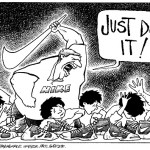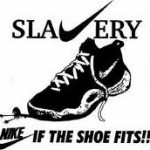In Barrie McKenna’s article, we are forced to acknowledge the bitter fact that Canada’s biggest technology firm, BlackBerry Ltd., is bound to be bought by foreigners. Similar to what we discussed in class, BB’s “prized intellectual property risks leaving the country” (para. 1). From a nation-wide perspective, BB has contributed significantly to Canada in terms of generating patents and tax credits. Needless to say, BB’s activities result in the flow of millions to billions of dollars.
From learning about the business canvas model, it is apparent BB has failed to deliver its value propositions to its desired customer segments effectively enough to generate profitable revenue streams. Blackberry has failed to notably innovate.
While the government can try its best to save the famous Canadian company, buyers are readying for the acquisition process. Conversely, the Canadian government has simply not done enough to encourage research and development firms in the country. Our country pays out “$4.5-billion more a year in licensing fees to foreigners than it collects from others” (para. 13). Blackberry easily broke barriers-to-entry only to fall back out.
http://www.theglobeandmail.com/report-on-business/dont-expect-blackberrys-patents-to-stay-in-canada/article14594494/

